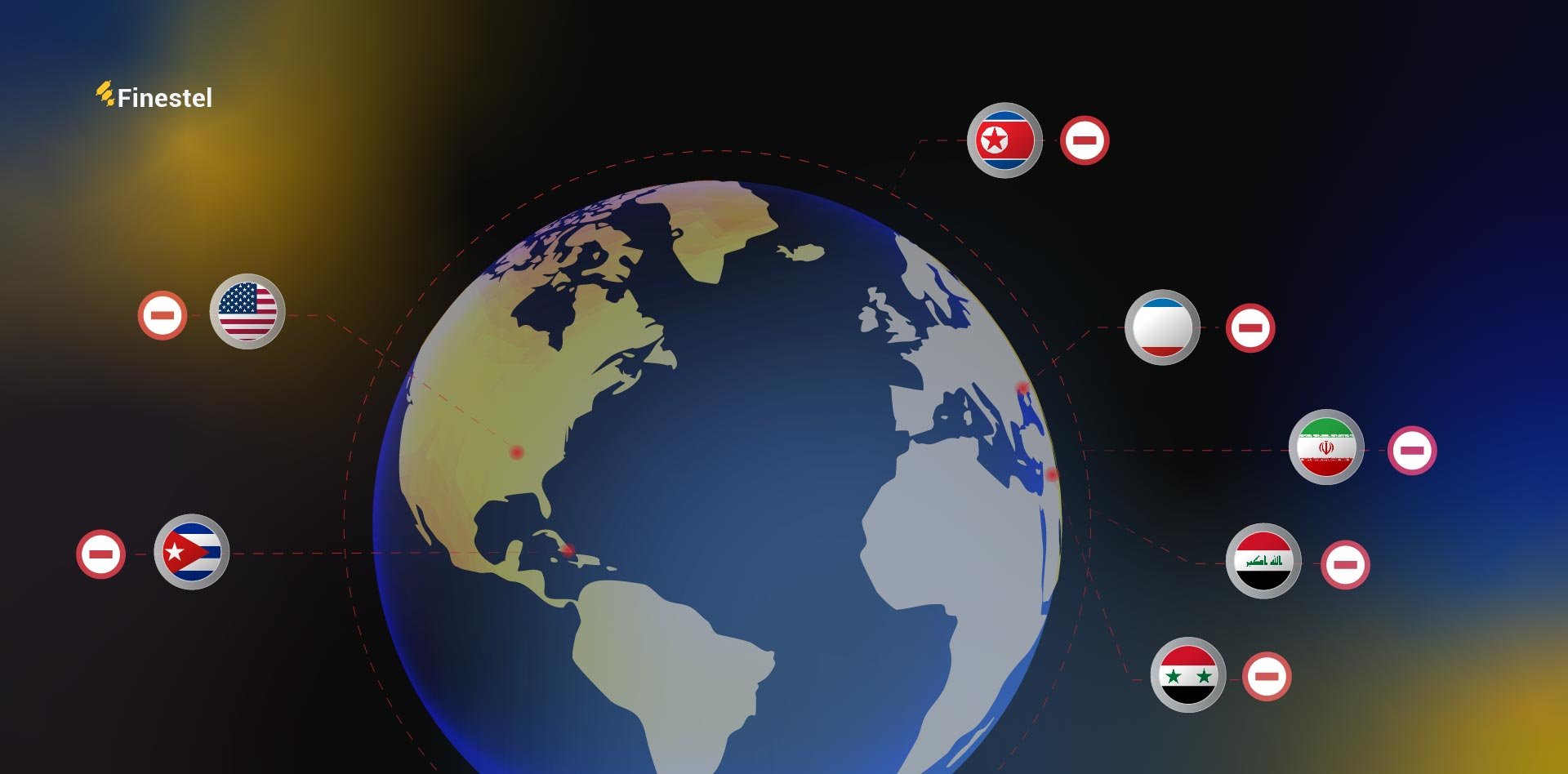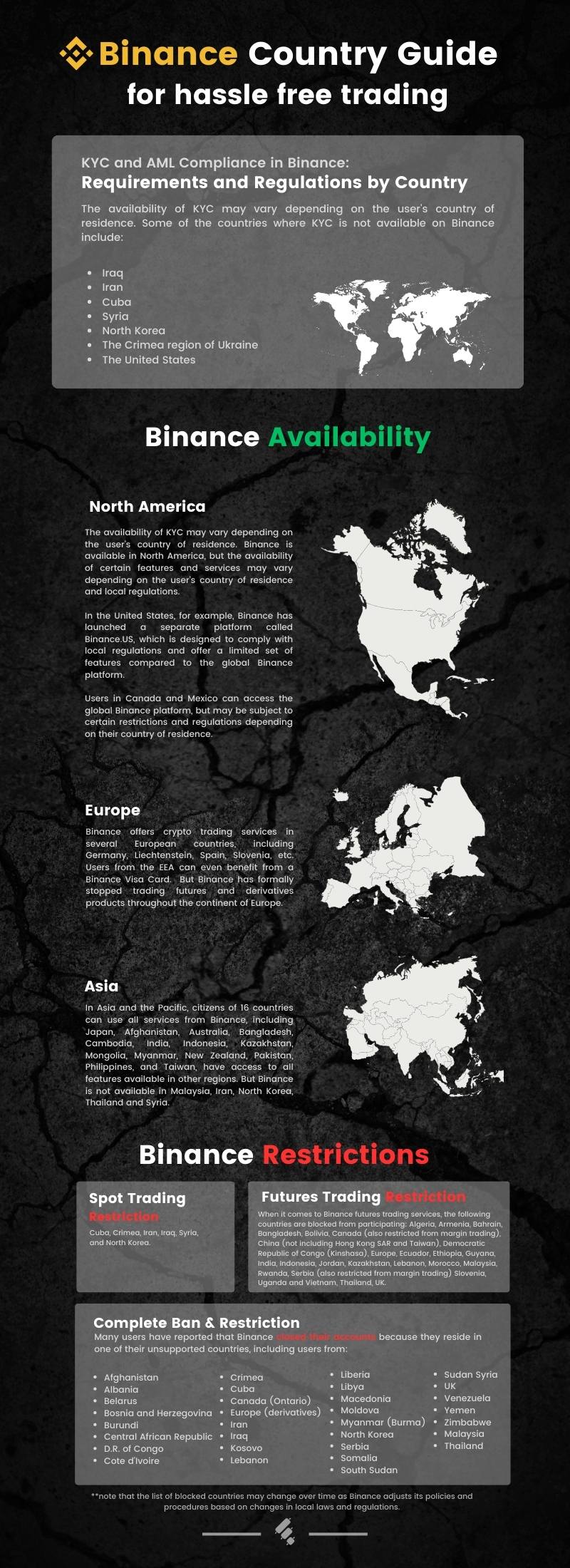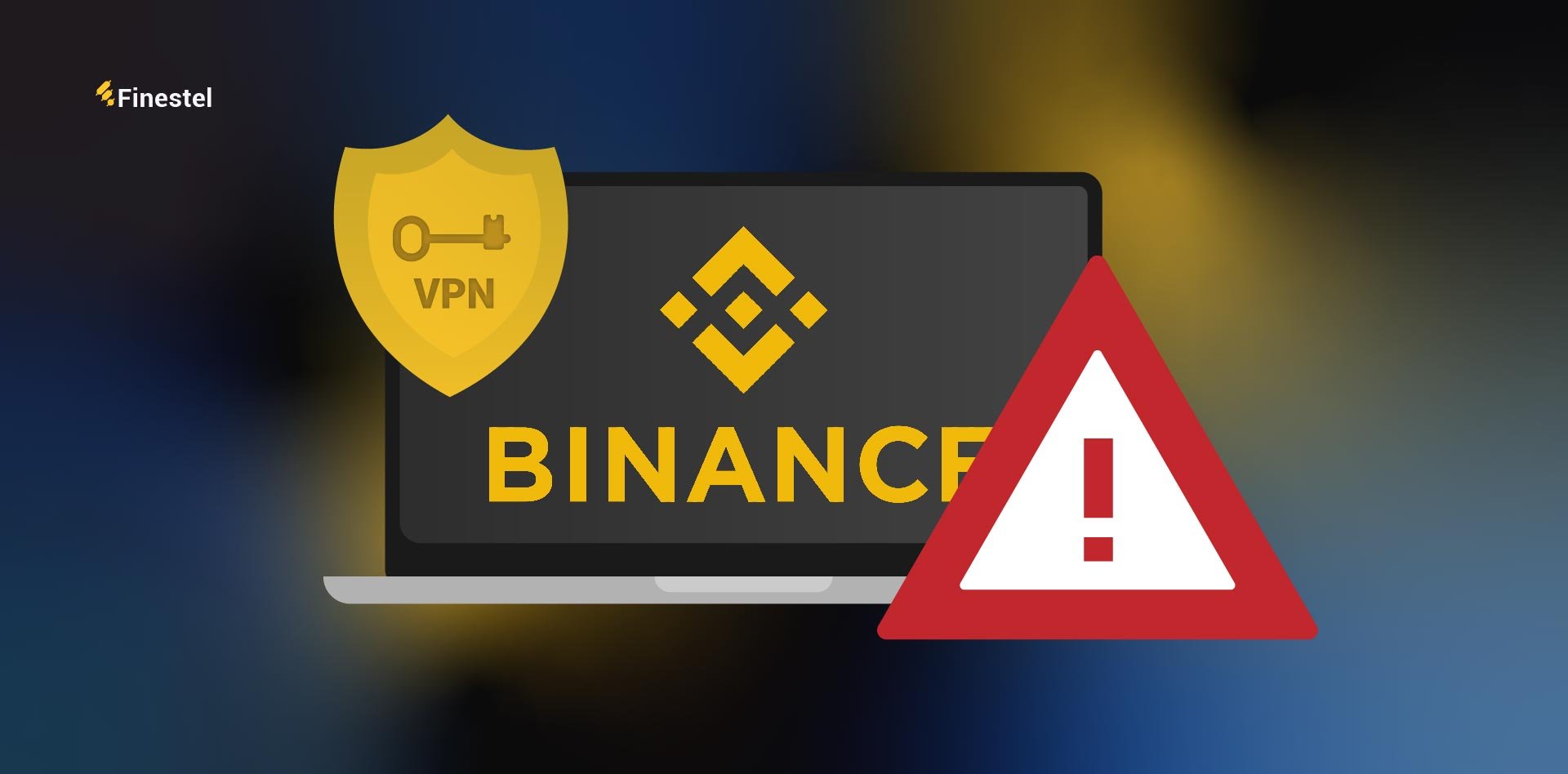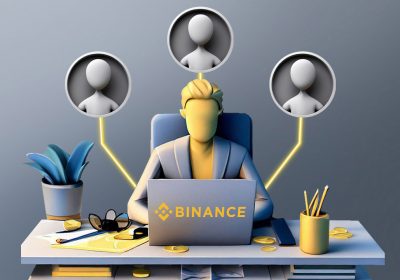Binance is a popular cryptocurrency exchange that has gained a reputation for being one of the most reliable and secure platforms for trading digital assets. It offers a wide range of features, including margin trading, lending, and staking, making it a one-stop shop for all your cryptocurrency needs. Binance has also gained popularity for its low trading fees, which are among the lowest in the industry.
However, Binance is not available in all countries. The platform supports a wide range of countries, But, there are also countries where Binance is restricted or banned. This article will provide an overview of the Binance supported countries and those restricted or banned from using its services.
We’ll cover the different restrictions that apply depending on which country you’re in, so you can make an informed decision before signing up. We’ll also provide some valuable tips and tricks for those who do not have full access to Binance, as well as give recommendations on alternative exchanges which offer similar services. So before joining Binance, read this guide to discover your options and ensure your money is secure!
Binance International Availability: Where Can You Use Binance?
Binance Supported countries include most countries, but Not All. It means that some countries may have limited access to certain activities related to Binance, such as deposits and withdrawals. Visit the Binance Country Selector to see if the exchange is available in your region.
The availability of Binance in different countries is determined by a variety of factors, including local regulations, compliance requirements, and licensing agreements. Binance must comply with the laws and regulations of each country where it operates, and may need to obtain licenses or approvals from local authorities in order to offer certain services. Additionally, Binance may choose to limit or restrict access to certain features or services in certain countries based on local regulations or other factors.
KYC and AML Compliance in Binance: Requirements and Regulations by Country
AML stands for Anti-Money Laundering, which is a set of laws, regulations, and procedures designed to prevent the generation of income through illegal activities. In the context of Binance, AML refers to the measures taken by the platform to prevent money laundering and other financial crimes.
Binance has implemented a comprehensive AML program that includes Know Your Customer (KYC) procedures, transaction monitoring, and suspicious activity reporting. KYC procedures require users to provide personal information and documentation to verify their identity and prevent fraudulent activity. Transaction monitoring involves the tracking of user transactions to identify any suspicious activity, such as large or unusual transactions. Suspicious activity reporting involves the reporting of any suspicious activity to the relevant authorities.

The availability of KYC may vary depending on the user’s country of residence. Some of the countries where KYC is not available on Binance include:
- Iraq
- Iran
- Cuba
- Syria
- North Korea
- The Crimea region of Ukraine
- The United States
Additionally, users in certain countries may face challenges completing KYC procedures due to local regulations or restrictions.
Binance Availability in North America, Europe, and Asia
Now let’s take a look at availability around the world and find out more about binance supported countries in North America, Europe, and Asia:
North America: Binance is available in North America, but the availability of certain features and services may vary depending on the user’s country of residence and local regulations. In the United States, for example, Binance has launched a separate platform called Binance.US, which is designed to comply with local regulations and offer a limited set of features compared to the global Binance platform. Users in Canada and Mexico can access the global Binance platform, but may be subject to certain restrictions and regulations depending on their country of residence.
Europe: Binance offers crypto trading services in several European countries, including Germany, Liechtenstein, Spain, Slovenia, etc. Users from the EEA can even benefit from a Binance Visa Card. But Binance has formally stopped trading futures and derivatives products throughout the continent of Europe.
Asia: In Asia and the Pacific, citizens of 16 countries can use all services from Binance, including Japan, Afghanistan, Australia, Bangladesh, Cambodia, India, Indonesia, Kazakhstan, Mongolia, Myanmar, New Zealand, Pakistan, Philippines, and Taiwan, have access to all features available in other regions. But Binance is not available in Malaysia, Iran, North Korea, Thailand and Syria.
Binance Restricted Countries: A Complete List
Many users have reported that Binance closed their accounts because they reside in one of their unsupported countries, including users from:
- Afghanistan
- Albania
- Belarus
- Bosnia and Herzegovina
- Burundi
- Central African Republic
- Democratic Republic of Congo
- Cote d’Ivoire
- Crimea
- Cuba
- Canada (Ontario)
- Iran
- Iraq
- Kosovo
- Lebanon
- Liberia
- Libya
- Macedonia
- Moldova
- Myanmar (Burma)
- North Korea
- Serbia
- Somalia
- South Sudan
- Sudan Syria
- Ukraine
- UK
- Venezuela
- Yemen
- Zimbabwe
- Malaysia
- Thailand
Binance Spot Trading Restrictions by Country
The countries where Binance spot trading services are currently blocked include Cuba, Crimea, Iran, Iraq, Syria, and North Korea. It’s important to note that the list of blocked countries may change over time as Binance adjusts its policies and procedures based on changes in local laws and regulations.
The United States is one of the trickier countries regarding sign-up restrictions and access to Binance. Binance has launched a separate platform called Binance.US, which is designed to comply with local regulations and offer a limited set of features compared to the global Binance platform. Residents of the United States are only able to access certain features on Binance.US, including spot and margin trading, staking, and futures trading. However, U.S. users cannot participate in initial coin offerings (ICOs) due to regulatory restrictions.
Additionally, depending on which state a user resides in, their access to Binance.US may be limited or barred entirely from certain features. Residents of Wyoming, New York, Texas, and Florida have full access to all features of Binance.US, while residents of other states may have limited access or be barred entirely from certain features.
Binance Futures Trading Restrictions by Country
When it comes to Binance futures trading services, the following countries are blocked from participating: Algeria, Armenia, Bahrain, Bangladesh, Bolivia, Canada (also restricted from margin trading), China (not including Hong Kong SAR and Taiwan), Democratic Republic of Congo (Kinshasa), Europe, Ecuador, Ethiopia, Guyana, India, Indonesia, Jordan, Kazakhstan, Lebanon, Morocco, Malaysia, Rwanda, Serbia (also restricted from margin trading) Slovenia, Uganda and Vietnam, Thailand, UK.

Why Are Some Countries Banned from Binance? Understanding the Reasons Behind Restrictions
Here are some reasons why some countries may be banned from Binance:
- Local regulations: Binance must comply with the laws and regulations of each country where it operates. Some countries may have strict regulations or outright bans on cryptocurrency trading or exchanges, making it impossible for Binance to operate in those countries.
- Compliance requirements: In addition to local regulations, Binance must also comply with international laws and regulations related to anti-money laundering (AML) and know-your-customer (KYC) requirements. Some countries may have stricter requirements than others, making it difficult for Binance to operate in those countries.
- Licensing agreements: Binance may need to obtain licenses or approvals from local authorities in order to offer certain services in certain countries. If Binance is unable to obtain the necessary licenses or approvals, it may be forced to restrict or limit its services in those countries.
- Security concerns: Some countries may be considered high-risk for fraud or other security concerns, making it difficult for Binance to operate safely and securely in those countries.
- Political tensions: In some cases, political tensions between countries may lead to restrictions or bans on certain services or companies. Binance may be caught up in these tensions and be forced to restrict or limit its services in certain countries.
- Capital controls: Some countries impose capital controls to limit the flow of money in and out of the country. These controls can make it difficult for Binance to facilitate cross-border transactions, impacting its availability in those countries.
- Consumer protection regulations: Financial regulators in some countries may impose strict consumer protection rules on financial service providers, including cryptocurrency exchanges. Binance must comply with these rules, which may include requirements for transparency, disclosure, and dispute resolution.
What Happens If You Use Binance in a Banned Country?
Some users may attempt to use a VPN or other methods to access Binance from a banned country. This may involve using a VPN to mask their IP address and location, or using a virtual private server (VPS) located in a different country to access the exchange.
It is important to note that using a VPN or other methods to access Binance from a banned country may be against Binance’s terms of service, and could result in the suspension or termination of your account.
As Binance is a regulated company, it is taken very seriously by authorities, and any attempts to use the platform while residing in a banned country could potentially result in legal action. Fines or criminal penalties could be involved depending on the breach’s severity.

The consequences of using Binance without meeting your country’s KYC and AML compliance requirements could be severe, including:
-
Account closure: Binance may close your account if it detects that you are accessing its services from a banned country. This can result in the loss of any funds or assets held in your account.
-
Legal consequences: Depending on the laws and regulations in your country, using Binance in a banned country may be illegal and subject to legal consequences. This can include fines, penalties, or even imprisonment.
-
Security risks: Accessing Binance from a banned country may also pose security risks, as you may be using unsecured networks or devices that could compromise your personal information or assets.
-
Limited access: Even if you are able to access Binance from a banned country, you may have limited access to its services. Binance may restrict or limit certain features or services in banned countries due to regulatory or compliance reasons.
Alternatives to Binance for Cryptocurrency Trading in Banned Countries
If you’re living in a country where Binance isn’t supported and want to dabble in cryptocurrency trading, don’t worry! Other exchanges offer similar services.
Huobi Global
Huobi Global is a go-to choice for crypto traders, as it offers users a variety of coins, such as Bitcoin, Ethereum, Litecoin, and more. Plus, the platform has several features that Binance doesn’t yet offer, such as an over-the-counter (OTC) desk for large orders. As of 2021, Huobi supports almost all countries except the United States and certain European countries.
KuCoin
KuCoin can be a good alternative to Binance for users in restricted countries, as it is available in many countries where Binance is not. KuCoin offers a wide range of cryptocurrencies for trading, and has a user-friendly interface and advanced trading features. Additionally, KuCoin has a strong focus on security and has not experienced any major security breaches to date.
Kraken
Kraken is another excellent choice for those living in prohibited countries. This platform provides users with low fees on cryptocurrency transactions and advanced features such as margin trading and futures trading. As of 2021, Kraken is available to individuals from almost all countries across the globe—except for citizens from Afghanistan, Cuba, and North Korea.
Bitstamp
Bitstamp is one of the oldest exchanges around. People love it because it has transparent fee structures and some really cool features like two-factor authentication (2FA) and hardware authentication tokens—which most people now know are essential security measures when dealing with online trading platforms. As of 2021, Bitstamp supports almost all countries except those in mainland China.
Conclusion
Binance is a popular crypto exchange platform allowing crypto enthusiasts to buy, sell, and trade digital assets. For countries that Binance supports, the company provides helpful and reliable support to its users. Ultimately, Binance is an excellent platform for anyone interested in cryptocurrency markets, provided they know their nation’s legal status with the company.
So, before you jump in, make sure to check what countries are supported by Binance and whether your country is one of them. Indeed, you don’t want to lose your asset over lack of knowledge, would you?
FAQ
Can I use Binance without KYC?
The short answer is ‘no’. One of the first things potential users are asked to do before they are allowed into Binance is identify themselves. The KYC procedure is mandatory.
Is it possible to change my country on my Binance profile after signing up?
Yes, it is possible to change the country on your Binance profile after signing up. However, the process may vary depending on the country you are changing to and from. To change your country on Binance, you will need to contact their customer support team and provide them with the necessary information and documentation to verify your identity and residency in the new country. This may include a government-issued ID, proof of address, and other relevant documents.
Can I use Binance in the U.S. in 2023?
Binance launched a separate platform for U.S. users called Binance.US, which is compliant with U.S. regulations and laws. This means that U.S. users can only use Binance.US to trade cryptocurrencies and not the main Binance platform.
Are there any alternatives to Binance for users in restricted countries?
Yes, there are several alternatives to Binance for users in restricted countries. Some popular options include: Coinbase, Huobi, Gemini, Kraken, etc.
What should I do if I travel to a restricted country and need to access my Binance account?
If you travel to a restricted country and need to access your Binance account, contact Binance customer support for assistance. Ensure that you comply with all applicable laws and regulations in the country you are visiting and take steps to secure your account when traveling.





It’s really a great and helpful piece of information. I’m glad that you shared this helpful
information with us. Please keep us informed like this.
Thanks for sharing.
You’re welcome! We’ll update every one of our articles periodically, some weekly, some monthly and some quarterly. Check our blog to find more 🙂